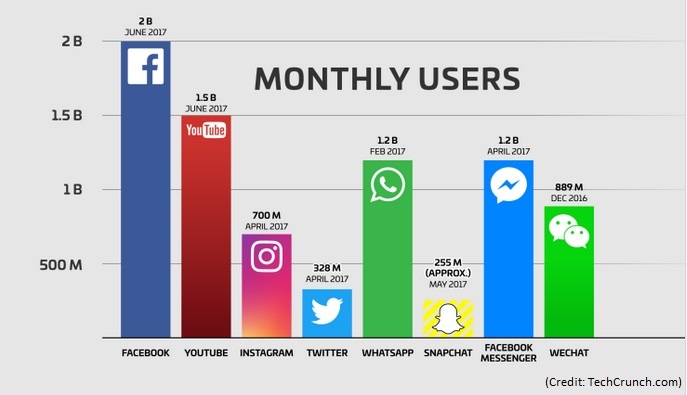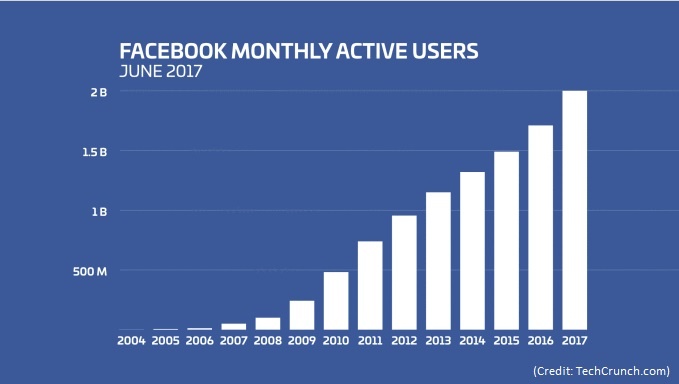Facebook Continues to Violate Privacy Despite Numerous Class Action Lawsuits

On March 1, 2012, I wrote an article titled Facebook Faces Yet Another Class Action Lawsuit. Facebook has been facing lawsuits in several states, and in 2012 a federal lawsuit was filed in the U.S. District Court for the Northern District of California accusing Facebook of violating it’s own privacy policy. According to Facebook’s privacy policy, the company was not supposed to track people’s post-log-out activity, but it did.
Over the years, privacy advocates have expressed serious concerns over Facebook’s violations of people’s privacy. As if tracking its own members, even after they logout from their account, wasn’t enough for Facebook, it decided to start tracking non-members, as reported in this article Facebook begins tracking non-users around the Internet. In the past, Facebook has used its members in a psychological test as human guinea pigs without their permission and also used people’s location data to serve its purpose, which Facebook first denied and then backtracked, as reported in this Forbes article Facebook Is Playing Games With Your Privacy And There’s Nothing You Can Do About It. In addition to collecting all the personal data of its members for years, the folks at Facebook came up with an idea to gather even more confidential data from its members. This data is much more private than what the members enter in their profiles or share with their friends, such as birthday, address, phone number, email, etc. Facebook decided to start asking people for their government IDs, such as:
- Passport
- Drivers’s license
- State-issued ID card
- Military ID card
- Immigration ID with signature
Initially, Facebook was asking for these government-issued IDs when its members would forget their passwords and had to get back into their accounts, but now they ask for these IDs when someone creates a new account with a name that flags Facebook as potentially fake name, as pointed out by Thomas Fox-Brewster in the Forbes article I mentioned earlier. Why not just ask for some information in the person’s profile or a password hint to verify a member’s identity if they forget their password? Obviously, that would be too easy and it would not allow Facebook to gather more private data from its 2 billion users. Yes, according to TechCrunch, as of June 2017 Facebook has 2 billion active monthly users.
Over the years, Facebook has grown from about half a billion users in 2010 to 2 billion users by the middle of 2017.
Fake Facebook Accounts
When we talk about Facebook users, we are actually talking about Facebook profiles. One statistic that is often ignored during discussions of Facebook monthly active users has to do with the fake Facebook accounts. According to various estimates, somewhere between 8.7% to 40% of all accounts on Facebook are fake. In an article published on CNN.com on August 3, 2012 titled 83 million Facebook accounts are fakes and dupes, Heather Kelly reported that “8.7 percent of its 955 million monthly active users worldwide are actually duplicate or false accounts.” Kelly points out that Facebook profiles for companies, pets, and the kids under 13 created by their parents are all in violation of Facebook’s terms of service. Because Facebook’s policy doesn’t allow using a fake name, technically the law enforcement officers who capture criminals by using fake Facebook profiles are also in violation of Facebook’s policy. I am pretty sure Facebook won’t be asking them for a government-issued ID :-). Facebook believes that the percent of fake accounts in developed markets, such as United States and Australia, is lower than developing markets such as Indonesia and Turkey.
So who is to blame for this large number of fake Facebook accounts? I would argue, that among others, Facebook itself is partially to be blamed. Facebook has been consistently criticized as being among the top privacy violators in the world. Due to this long history of privacy violations, public is encouraged to create fake profiles to protect its privacy. Having said that, I should point out that there are a lot of people who create fake profiles for spamming and other illegal activities, which has nothing to do with privacy concerns of law-abiding citizens. Fake accounts have been such a big problems that a couple of months ago USA Today asked FBI to look into fake Facebook followers. USA Today said that 50% of its followers on Facebook are fake. According to USA Today “Fake profiles that masquerade as real people have also caused tragedy, such as the torture and killing of a university student in Pakistan after someone set up a fake Facebook account in his name that allegedly contained blasphemous content.”
Fake accounts are a big business. In this digital marketing age, companies like Twitter have also been dealing with the fake account issues. According to New York Times article Fake Twitter Followers Become Multimillion-Dollar Business “Fake followers are typically sold in batches of one thousand to one million accounts. The average price for 1,000 fake followers is $18, according to one study by Barracuda Labs.” Twitter spokesman Jim Prosser had indicated that about 40% of all Twitter accounts appear to be fake because they only follow others and never tweet themselves.
Privacy Lawsuits Against Facebook
In April 2011, five plaintiffs claimed Facebook improperly used names and photos of users in Sponsored Story ads, violated a California law that forbids companies from using people’s names and likeness in ads without their permissions, and used names and likeness of users under 18 without their parents approval. A federal judge in California approved a $20 million settlement against Facebook in August 2013. As a result, 1.8 billion Facebook users received a $15 check.
In 2012, a law firm known as Stewarts Law combined 21 privacy lawsuits against Facebook into one giant class action lawsuit. This was in addition to another lawsuit filed against Facebook in March 2012 for allegedly uploading users’ address books without their permission.
In 2013, a privacy lawsuit was filed against Facebook for using private information for targeted advertising. Facebook was also accused of using the data obtained from scanning messages to generate recommendations for other users and then sharing that data with third parties.
In 2016, a class action lawsuit was filed in Northern California District Court claiming that Facebook illegally scanned private messages in violation of Electronic Communications Privacy Act and California Invasion of Privacy Act.
In May 2016, a California judge ruled that Facebook violated user privacy by scanning their faces without their permission and inviting others to tag them in photos. According to Fortune “The case is significant because it’s one of the first to test the boundaries of how companies use facial recognition software, a rapidly-advancing technology that treats faces as the modern-day equivalent of a fingerprint.” Internally Facebook refers to the facial recognition technology as “faceprint.”
How Does Facebook Benefit from Violating User Privacy?
In the previous section, I just gave you a few examples of the privacy lawsuits against Facebook. In case you are wondering why these lawsuits are brought only by California, Facebook’s terms of service require that all legal disputes be settled in California. It’s common for large organizations to face a lot of lawsuits and Facebook is no different. However, Facebook stands out as one of the richest, most successful companies that are consistently criticized for privacy violation. The Network World included Facebook Apps among its 15 worst Internet privacy scandals of all time:
“The popular social media site has been plagued by privacy issues over the years. Its highest-profile problem was in October 2010, when Facebook admitted that its top 10 most popular applications including FarmVille and Texas Hold`em shared user data, including names and friends’ names, with advertisers. A Wall Street Journal investigation uncovered the Facebook privacy breach and said it affected tens of millions of users, including some that had used Facebook’s most stringent privacy settings. Facebook had previously been in trouble for transmitting user ID numbers to advertising companies when users clicked on ads. In November 2011, Facebook settled a case with the U.S. Federal Trade Commission about several incidents and agreed to 20 years of third-party privacy audits.”
A couple of days ago, on July 27, 2017, Facebook CEO Mark Zuckerberg made $3.4 billion dollars in one hour after Facebook’s impressive earnings in the second quarter. This bumped his net worth to $56.7 billion and made him the fifth richest person in the world. As of 2016, Facebook was worth $350 billion and CNN Money made the case that one day it could be worth $1 trillion. If a company makes so much money, even if it gets fined a few billions here and there, it barely puts a dent in its financial empire. Facebook primarily makes money from advertising revenues and by gathering personal information about its users so it can increase its targeting capabilities. Your age, gender, relationship status, etc. are all important to Facebook. For example, people in the 25-34 year age group (29.7%) are the most common users of Facebook, so naturally Facebook is going to aggressively go after this age group no matter what. Based on its past history, Facebook is willing to use the millennials and other age groups as guinea pigs in secret psychological experiments without their knowledge, share their private data with advertisers without their permission, scan their faces, upload their user address books, and scan their messages, all without their permission. Of course, it will face a lot of class action lawsuits, but at the end of the day it is likely to become a company that’s worth $1 trillion because it’s too big to fail.
It’s hard not to think of Max Schrems when Facebook is mentioned in a conversation. If you haven’t heard about this millennial, you should look him up on the Internet. He is an Austrian lawyer and privacy advocate who has been called An Austrian Thorn in Facebook’s Side when he was a 24-year old law student. His story is an interesting one. He has won many awards and the privacy advocates appreciate his work.
| Thanks for reading my article. If you are interested in IT training & consulting services, please reach out to me. Visit ZubairAlexander.com for information on my professional background. |
Copyright © 2017 SeattlePro Enterprises, LLC. All rights reserved.




